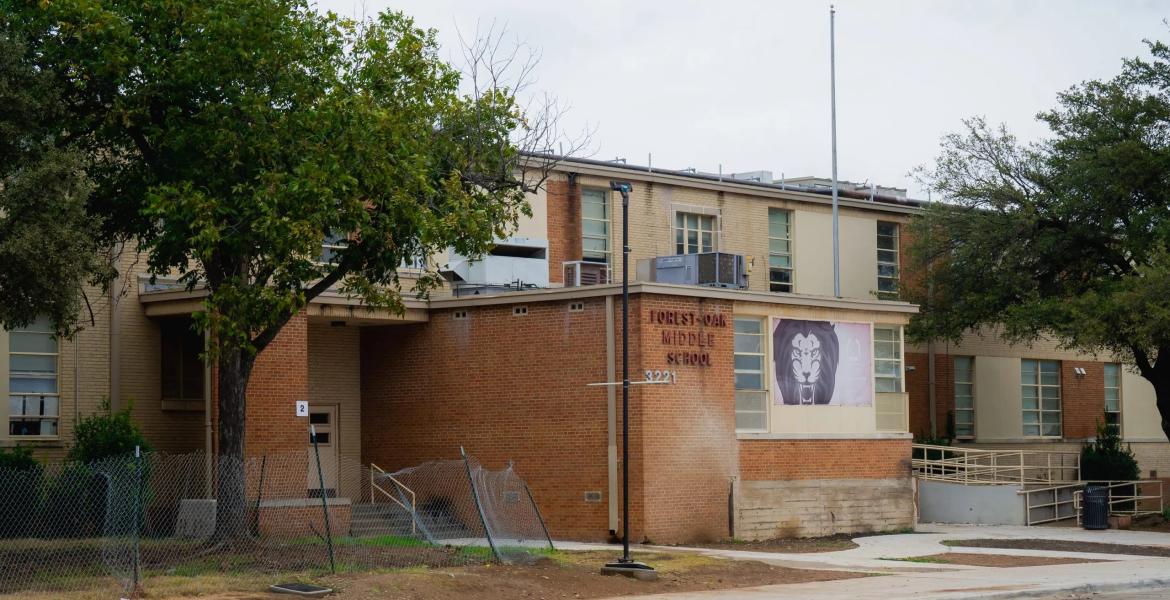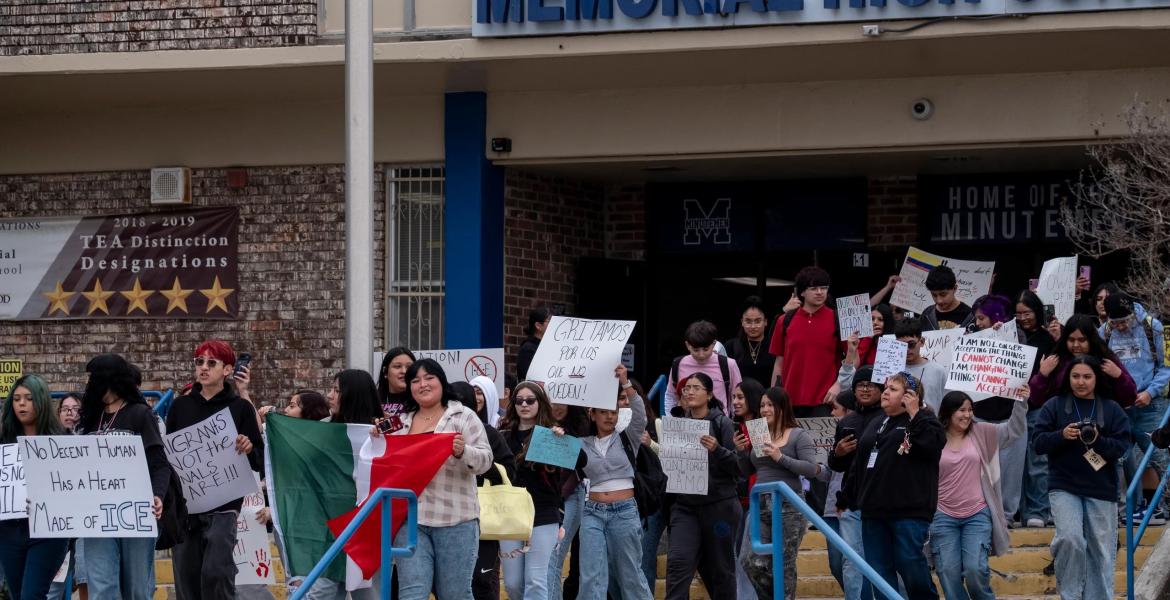SAN ANGELO, TX – Halloween, a beloved holiday in the United States, is marked by children and adults alike dressing up as superheroes, celebrities, and spooky creatures. While often seen as a secular celebration, Halloween has deep Catholic roots that are often overlooked. The holiday’s name itself, "Halloween," is derived from All Hallows' Eve, the Vigil of All Saints’ Day, a Catholic feast day commemorating those who have passed on to heaven.
Among the Christian groups that actively avoid Halloween are conservative Protestant denominations like the Seventh-day Adventists, Jehovah's Witnesses, and certain factions within Baptist and Pentecostal traditions. These groups express concerns about Halloween's connection to darkness, death, and the occult, which they view as being in direct opposition to Christian beliefs.
Vatican News writer Christopher Wells writes that despite common associations with pagan traditions, Halloween's Catholic origins trace back to the Church's liturgical calendar. On November 1, Catholics observe All Saints' Day, followed by All Souls' Day on November 2, when prayers are offered for those in Purgatory. The themes of mortality and the afterlife, which are central to the liturgical focus during this time, have contributed to the eerie atmosphere often associated with Halloween.
Bishop David Konderla of Tulsa, Oklahoma, emphasized the importance of keeping the Catholic meaning alive amid the secularization of Halloween. In a statement to his diocese, he urged the faithful to maintain a Catholic spirit in their celebrations, particularly in customs like dressing up, while avoiding aspects that conflict with Church teachings.
Dr. Malcolm Brown, of the Alcuin Institute for Catholic Culture in Tulsa, explained the significance of the holiday. "Halloween is celebrated on the eve of All Saints' Day, and its name comes from the older English term 'hallows,' meaning holy," he said. "It’s a time when Catholics reflect on the triumph of the Church in heaven and the lives of the saints on earth."
Dr. Brown also noted that the modern fascination with ghosts, goblins, and ghoulish imagery has roots in Catholic tradition. "These symbols are meant to remind us of death and the afterlife—key concepts in the Church's teachings on mortality, judgment, and eternity."
As Halloween continues to evolve in the U.S., Catholic leaders like Bishop Konderla are encouraging communities to embrace its spiritual aspects. In his memorandum, he called for a renewed focus on the holy purpose of the holiday, urging Catholics to reflect on the beauty and depth of All Saints' Day during their Halloween festivities.
As October 31 approaches each year, Halloween festivities in the United States often spark debates among various Christian communities. While many Christians partake in the holiday’s traditions like trick-or-treating and costume parties, several Protestant and Evangelical denominations refrain from celebrating Halloween, citing concerns over its pagan roots, spiritual influences, and biblical teachings.
Denominations That Abstain from Halloween
-
Seventh-day Adventists
Seventh-day Adventists avoid Halloween due to its perceived conflict with their focus on spiritual health and vigilance against evil. A spokesperson from a local Adventist church explained:
"We believe that Halloween's emphasis on fear, darkness, and the glorification of supernatural evil does not align with our faith's teachings on focusing on God's light and righteousness."
Adventists are particularly wary of participating in activities that they feel trivialize demonic forces or promote superstition.
-
Jehovah's Witnesses
Jehovah’s Witnesses are one of the most well-known Christian groups that refrain from celebrating any secular holidays, including Halloween. For them, Halloween is associated with pagan rituals that predate Christianity. The Watchtower, their primary publication, consistently advises members to steer clear of practices tied to false religions.
One congregation elder remarked:
"We don’t celebrate Halloween because it stems from pagan traditions, which the Bible instructs us to avoid. As Christians, we are called to remain separate from worldly customs that do not honor Jehovah."
Witnesses instead focus on their daily worship practices, refraining from observing any festivities they believe promote worldly or non-Christian practices.
-
Some Baptist and Pentecostal Churches
While there is a range of views within Baptist and Pentecostal communities, many conservative congregations opt out of Halloween celebrations. They argue that the holiday’s focus on death, ghosts, and evil is incompatible with their teachings. For these churches, even the seemingly harmless traditions like dressing up or pumpkin carving can be problematic if they obscure the gospel’s message.
Pastor David Brooks from a Southern Baptist church explained:
"Our concern with Halloween lies in its spiritual implications. As believers, we are instructed in Ephesians 5:11 to 'have nothing to do with the fruitless deeds of darkness.' Halloween often glorifies death and fear, which are the opposite of the life and hope we find in Christ."
Some of these churches offer "Harvest Festivals" or "Reformation Day" celebrations as alternatives, promoting positive, faith-based activities on October 31.
-
Holiness and Apostolic Movements
Many in the Holiness and Apostolic Pentecostal movements reject Halloween outright, seeing it as a celebration that normalizes the occult and desensitizes people to spiritual warfare. These groups often emphasize the real dangers of witchcraft, demonic activity, and spiritual deception. For them, Halloween represents an open door to negative spiritual influences.
A member of an Apostolic Pentecostal congregation commented:
"We believe that engaging with Halloween is dangerous because it allows a platform for things that are clearly contrary to God’s word. We don’t want to open ourselves up to spiritual forces that we know are real and harmful."
Theological Reasons Behind the Abstinence
Many of the groups abstaining from Halloween point to the holiday’s pre-Christian origins, tracing it back to the ancient Celtic festival of Samhain, a celebration marking the end of the harvest season, when it was believed that the boundary between the physical and spiritual worlds blurred. For Christians who prioritize biblical purity and separation from non-Christian traditions, Halloween’s roots in paganism are seen as a stumbling block.
Another concern is the holiday’s association with fear, death, and darkness, themes that are incompatible with Christian teachings on life, light, and salvation. As one Baptist leader noted:
"The Bible tells us in 2 Timothy 1:7 that God has not given us a spirit of fear, but of power, love, and a sound mind. Halloween’s emphasis on fear contradicts this clear instruction."
Moreover, some Evangelicals highlight the potential for Halloween to desensitize people to the reality of evil, seeing its widespread acceptance of symbols like ghosts, demons, and witches as problematic. They believe that these elements trivialize spiritual realities, undermining Christian teachings on the spiritual battle between good and evil.
Alternative Celebrations and Responses
While these denominations avoid traditional Halloween activities, many of them offer alternatives that align with their religious values. Events like "Fall Festivals," "Trunk or Treats," or "Reformation Day" commemorations provide safe, family-friendly environments where the focus is on community, gratitude, and faith rather than fear or superstition.
Some churches encourage parents to use the holiday as a teaching moment, discussing the importance of discerning cultural practices through a biblical lens. As one Pentecostal youth leader put it:
"It’s crucial that we teach our children not to just follow the crowd but to understand why we make the choices we do. Halloween gives us a chance to talk about the importance of living out our faith in every area of life."
Conclusion
For these Protestant and Evangelical denominations, abstaining from Halloween is not merely about rejecting a cultural tradition, but about upholding their understanding of spiritual purity, biblical principles, and the dangers of engaging with forces they consider contrary to Christian teaching. While opinions vary widely across the Christian spectrum, those who choose not to celebrate Halloween do so with deeply held theological convictions and a desire to maintain a distinct separation from what they view as spiritually harmful influences.
Subscribe to the LIVE! Daily
Required






Comments
Listed By: Rita Repulsa
Imagine that your government tortures people with involuntary BDSM and the pop music from the radio, but being worried about a custom that people increasingly can barely afford to engage in. Of course, I experienced an odd and "coincidental" drugging incident in 2018 after tackling the subject of religion, and several other subjects, across internet venues. I suppose misdirected attention is the point.
Game: Recognized.
- Log in or register to post comments
PermalinkPost a comment to this article here: